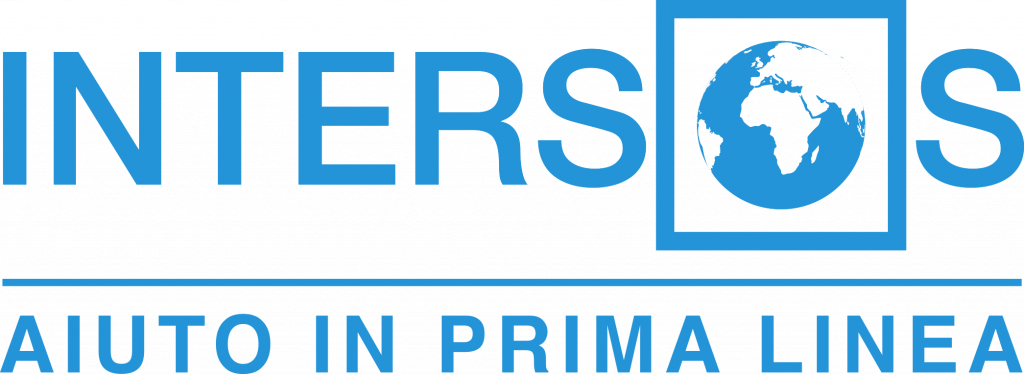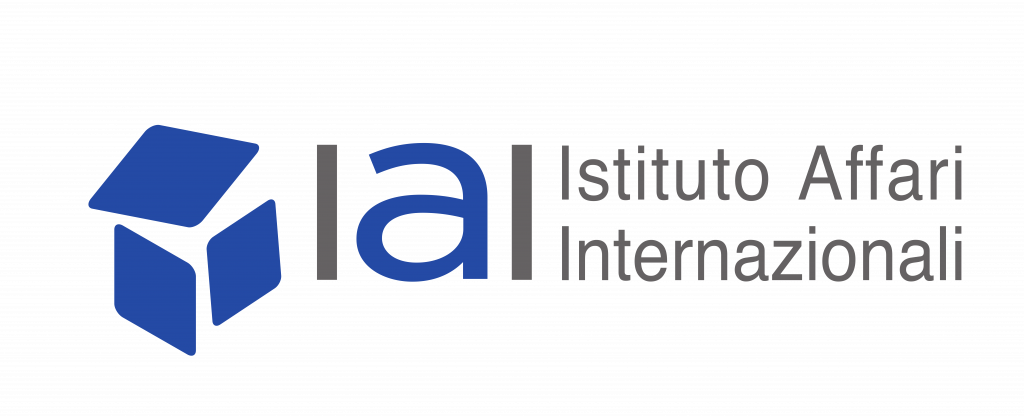Inclusive policies: A means to foster the cohesiveness of societies and prevent crises and conflicts
September 2020
Instructors:
-
Eleonora Lotti is Senior Advisor to OSCE High Commissioner on National Minorities. Before joining the OSCE, she worked in both Lebanon and Palestine, including, among others, as an associate political affair officier at the United Nations Office of the Special Coordinator for Lebanon (2016- 2018) and monitoring and evaluation manager at AVSI Foundation (2014-2016). She has experience in analysis and reporting concerning humanitarian crises and in managing relief and assistance programs.
- Alessandro Rotta is senior advisor at OSCE High Commissioner on National Minorities. He has also served as senior advisor on political affairs at EURS/EU in Kosovo (since 2013) and, previously, as political advisor for EULEX Mission in Kosovo (2011-2013). He has extensive knowledge and experience in political analysis, reporting and advising, especially with reference to South Eastern Europe countries.
Workshop syllabus
In diverse societies, minority-related issues have, if not supported by balanced and inclusive policies, the potential to ignite crisis and conflict. Drawing on the experience of the OSCE High Commissioner on National Minorities (HCNM), this WS will demonstrate how States can use policies in a number of sectorial areas – from education to language and participation –to unite, rather than divide, societies. Practical examples from the OSCE space will be provided, notwithstanding the confidentiality principle enshrined in the High Commissioner’s mandate. After a theoretical overview of the High Commissioner’s work and mandate, the instructors will guide the students to conduct a simulation of some real-life cases. As part of that, the students will be confronted with the challenges that policy-makers face in the management of diversity and be encouraged to identify solutions that advance social integration, which is key to preserving peace and security.
OSCE
The Organization for Security and Co-operation in Europe (OSCE) is the largest regional security organization in the world. Its priority is to overcome differences and build mutual trust. The OSCE is committed to ensuring peace, democracy and stability for over one billion people. In the area of security, which he defines globally, it operates in three "dimensions".
- Politico-military dimension: the politico-military dimension is active in various areas: reforms of defense and police apparatuses, border protection, fight against cross-border threats such as terrorism, conflict prevention and management, arms control, safe storage and destruction of small arms and small caliber and fight against cybercrime.
- Economic and environmental dimension: the promotion of economic development and environmental protection is part of the tasks of the environmental and economic dimension, which also includes the fight against corruption, initiatives for the sustainable use of natural resources and eco-compatible waste management and resource management. water.
- Human dimension: the human dimension is designed to promote respect for and protection of human rights and fundamental freedoms, consolidating democratic structures. It also deals with promoting tolerance and non-discrimination, media freedom, minority rights and the rule of law.
Humanitarian intervention in complex crisis: A frontliner humanitarian organization’s experience
September 2020
Instructor:
- Marcelo Enrique Garcia Dalla Costa, Head of Emergency Unit, INTERSOS
Workshop syllabus
The Workshop’s goal is to give students an in depth understanding of the strategies, the approaches, as well as the standard procedures and best practices concerning emergency intervention in complex humanitarian crises. Through simulations and working group activities, based on INTERSOS’ experience in Venezuela, Indonesia and Syria, students get acquainted with the different methods and approaches adopted by NGOs in contexts of crisis.

Investments in troubled territories: How to draft a Notice of Arbitration
September 2020
Instructor:
- Sondra Faccio is Assistant professor at the School of International Studies of the University of Trento. Her research focuses on international investment law and arbitration, including in context of civil wars and other cases of contested sovereignty. Sondra is a lawyer with experience in the field of commercial and investment arbitration.
Workshop syllabus
The workshop aims to provide students with an overview on the phenomenon of international investment arbitration as an instrument to settle disputes between private investors and host States under international law. The importance of investment arbitration in the international economic panorama has grown steadily over years (with currently more than 900 total cases and 332 pending cases as of July 2019) in parallel with concerns related to its capacity to deal with sensitive public interests, conflicting States’ international law obligations that may be involved in the dispute, lack of transparency and costs. Through the analysis of documents publicly available concerning a concrete investorState dispute submitted to international arbitration, students will understand what are the main players involved (arbitrators, investor, State, third-parties) and their (sometimes conflicting) interests, the main phases of an international investment arbitration proceeding, as well as, the main international law principles and rules that come into play. The workshop will specially focus on investment disputes emerging in contexts of conflicted sovereignty, such as Crimea and Venezuela, and will emphasise what are concerns affecting investor-State arbitration in these cases. Students will simulate the drafting and submission of a notice of arbitration, the initial act of an investment arbitration proceeding, and will discuss its content with the class. This will help students understanding in practical terms what are the subjects involved, the requests usually formulated by the investor and the interplay between the different international law rules that apply to the proceeding.
Learning Policy Advice
February 2021
Instructor
- Giulio Venneri - Policy Officer at the Enlargement Directorate of the EU Commission
Workshop syllabus
The Workshop offers both theoretical and vocational training on policy writing techniques. It helps students deepen their knowledge of political and operational issues in the fields of international relations and familiarise with the specific office dynamics characterising policy jobs in international relations and EU external affairs. The Workshop revolves around three written individual exercises. Targeted feedback is provided at the end of each simulation.
Energy in the East Med: Theoretical perspectives and crisis scenario simulation
February 2021
Instructors:
-
Alessia Chiriatti is head of the Istituto Affari Internazionali (IAI)’s Educational Programme. She worked as adjunct professor at Università degli Studi di Perugia and as research fellow in Political Sciences and International Relations at the University for Foreigners of Perugia. She obtained her PhD from the University for Foreigners of Perugia, with a thesis on Turkish foreign policy in Syria and Georgia (2014). She is member of the International Advisory Board of Novus Orbis: Journal of Politics and International Relations and member of the Editorial Committee of The International Spectator.
- Luca Franza is head of the Energy, Climate and Resources Programme at Istituto Affari Internazionali (IAI). He is associate fellow at the Clingendael International Energy Programme (CIEP) in The Hague (The Netherlands) and lecturer in the Energy Master of the Paris School of International Affairs (PSIA) – SciencesPo. He earned a PhD at the University of Groningen (The Netherlands), with a thesis on the political-economic impact of transformations in long-term gas contracts between the EU and Russia. He is also co-chair of the T20 task force on sustainable energy and climate" e "member of the Sustainability Advisory Board at Edison SpA.
Workshop syllabus
The Eastern Mediterranean has become a major hotspot of energy and an important hub for geopolitical competition, driven by several offshore discoveries in the last decades. The workshop will be focused on the main aspects and trends related to energy landscape and energy exploitation in the Eastern Mediterranean, intending this latter as a region of transit. The workshop will be structured into two parts: firstly, seminars and briefings will be delivered online by expert speakers and academicians, focusing on geopolitical and international legal issues on energy dynamics in the East Med. Several case studies will be proposed (e.g. Turkey, Cyprus, Lebanon, Egypt) in order to go in depth in the different stage of cooperation, tensions and competition among States in the region. During the second part, a simulation will be conducted in order to apply theories, concepts and scenario analysis debated during the first part of the workshop. Students will be enrolled in a simulation context in the East Med, representing a Member State in an international organization, with the aim to negotiate on energy issues according to their country position. A crisis will be introduced during the simulation, in order to evaluate a possible strategy of crisis response and recovery. The simulation’s final goal will be the composition of a document, agreed by all the Member States in the assembly. A background guide and detailed studies will be distributed to the students before the simulation, in order to give them the possibility to be prepared for the workshop activities.
IAI
The Istituto Affari Internazionali (IAI) was founded in 1965 on the initiative of Altiero Spinelli, and is currently among the most influential think thanks in Italy and Europe. The Institute's main objective is to promote an understanding of the problems of international politics through studies, research, meetings and publications. The Institute participates in major research networks and develops research activities on very many topics: EU, politics and institutions, Eastern Europe and Eurasia, Security, Defence, and Space, Global Actors, Mediteranean and Middle East, Multilateralism and global governance, Energy, climate and resources, Italy's Foreign Policy. The Institute coordinates and participates in several research projects, organizes series of conferences in Italy and abroad, and publishes working papers, journals, and newsletters (such as The International Spectator, OrizzonteCina, and AffarInternazionali). The Istitute overviews students' internship programmes.
SIS and IAI signed a Partnership Agreement: the agreement aims at fostering the collaboration between the respective researchers, develop common projects and research programs, cooperate in teaching and dissemination activities, increase the educational opportunities of the SIS students.

